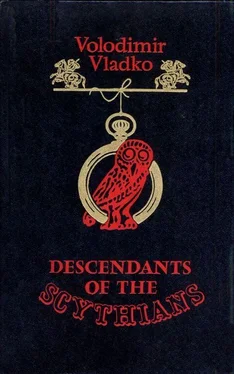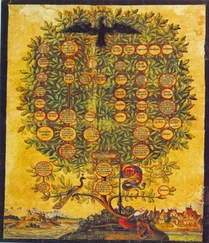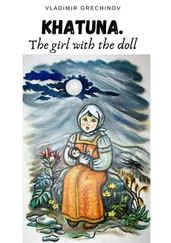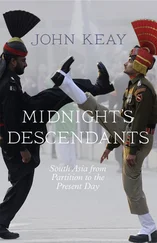Artem, roused by his own fervid words, was burning with the desire to see the action started as soon as possible. Dmitro Borisovich translated only the essence of what he had said so that the young man would get the answer the sooner.
“There are, in fact, several reasons why we can’t begin the uprising right away,” Ronis said with utmost gravity.
“What reasons?” Artem persisted. “Didn’t Ronis himself say a discontent was growing among the slaves, hunters, and herdsmen? What else are you waiting for?”
“That’s exactly what the hotheads who started the previous revolt prematurely, said,” Ronis replied gloomily. “They paid dearly for their rashness… and the whole thing ended in disaster… An uprising is a complicated matter — overlook one little detail, and everything is ruined.”
Artem lowered his head again — the clever Greek had some very convincing arguments.
“We have to get more weapons. We don’t have enough. That’s first,” Ronis continued. “The old warriors and their servants are better armed. Besides, the priests are also rather well armed. Second, they are all united by the fear of the impending uprising and are on guard.”
“So what?” Artem said hotly again. “They’re united, so why can’t you unite? Everything depends on you and those who share your views. You should give weapons to the people, incite them to action, make them follow you… then victory is yours! That’s what you should understand!”
Ronis looked at Artem with added interest: he must have liked the young man’s sincere impetuosity.
“Everything you say is quite correct in itself,” Ronis said after a short silence. “But as it happens, now is not the right time to undertake anything decisive. Dorbatay played his role well — you saw that yourself — and he’s managed fo sway the majority of the Scythians to his side. The Scythians fear the gods and believe it was the gods who punished Skolot. But I can assure you that things will change radically in the nearest future…”
“How soon will that be?”
“That depends on when the Scythians start the funeral journey to bury Skolot. You see, Scythian chieftains of such prominence must be buried in a sacred place where many other chieftains have been buried. The place is called…”
“Gerrhus!” Dmitro Borisovich cried out quite forgetting for the moment of his duties as interpreter. His mind was momentarily invaded by other thoughts. He knew the name of the place where Scythian chieftains had been buried from reading Herodotus, the ancient Greek historian who had left the most comprehensive account about the Scythians to come down to us. Herodotus wrote that the Scythians buried the most prominent of their chieftains in Gerrhus, the location of which was known only to the Scythians. This was the place the Scythian chieftain Idanthyrsus had in mind when he mockingly advised the Persian King Darius to come and find the graves of their ancestors. But wasn’t Gerrhus reserved exclusively for the dead of the powerful Scythian tribe known as the Royal Scythians? At least that was how some later historians interpreted Herodotus on the subject. If that was so, how had it come about that a small Scythian tribe, the nomadic tribe of the chieftain Skolot had a similar custom? Was it because in its complete isolation it had adopted a mode of behavior learnt from stories about the Royal Scythians? At the moment the archeologist could not find a better explanation.
Ronis cast a puzzled glance at the stranger: how did he know about the sacred place of the Scythians? But, when he replied, he sounded quiet and deliberate, and not at all surprised:
“Yes, Gerrhus. Very few people know its exact location. It is generally believed to be somewhere in the vicinity of the Borysthenes…”
“The ‘Dnieper’ is what we call the river now,” Dmitro Borisovich added in an aside to Artem.
“Oh, but… wait, how could the Dnieper flow through here? It’s quite…” Artem said greatly perplexed.
“Hush, we’ll try to find an explanation later!”
Ronis continued:
“They have begun the embalming of the chieftain’s body. In a few days, the Scythians will break camp and begin the funeral procession to Gerrhus. Naturally, the slaves will follow them. The funeral rites at Gerrhus will involve many human sacrifices, and Dorbatay will need many slaves as victims…”
Ronis broke off his story at this point and fell into a short, gloomy silence, lowering his head. But very soon, he came out of his momentary melancholy and said:
“I am sorry, the very mention of the fact makes me sad. Dorbatay will sacrifice innocent people to his cruel gods… but ahead of everything else, he will use these sacrifices to establish even a firmer grip over the Scythians and make them, fear not the gods but the soothsayer himself!”
“There is still a good chance that he won’t be able to do it,” Varkan said.
“I hope so,” replied the Greek, frowning in concentration. “When the procession arrives in Gerrhus, our uprising will start. Anyway, that is how we’ve planned it.”
Artem was excited to hear at last a more or less definite term for the start of the action.
“You see, my friends,” Ronis went on, “while the Scythians are on the move to Gerrhus, Varkan will tell the hunters and herdsmen — those who can be relied on, of course — what should be done. Dorbatay and the elders will not be able to rally support on such short notice, as during the journey, the Scythians will inevitably get mixed up and the nobles and their retainers will not be able to stay close together in one group. Also, the final coup will be easier as we plan to keep very quiet during the journey so as to lull Dorbatay’s vigilance and make him think that the unrest has fizzled out.”
Listening to this, Artem could not help thinking of Ronis with growing admiration: this reserved man of short stature commanded tremendous respect! Ronis’s plan seemed to take into consideration every detail and eventuality one could possibly think of. The plan was sure to work! It was so sound that naturally, Varkan supported his friend all the way. It was indeed a happy albeit rare combination: the courage and intrepidity of the young Scythian warrior and the careful planning and wise foresight of the Greek.
So there was only one thing over which they had no control: whether or not Lida and Ivan Semenovich would come to any harm at Dorbatay’s hands before the journey ended and the uprising began. Was there any hope that their friends would be safe until then?
As though in response to the worried thoughts of the young man, Ronis spoke again in the same deliberate, convincing manner:
“I think this funeral journey will keep Dorbatay, as the head priest, very busy. He won’t have time to do any harm to your friends. As far as the girl is concerned, I think she is quite safe anyway, considering Hartak’s intention to marry her. And your other friend is also relatively safe from any immediate danger.”
“And why is that?”
“Well, there are some reasons to think so. Suppose Dorbatay intends to kill your friend…”
“A very nice thing to suppose, and very comforting too!” Dmitro Borisovich could not help exclaiming.
“But even if Dorbatay does have such an intention, he will not have time to deal with your friend until the actual burial of Skolot, because it would be more useful to sacrifice your friend during the funeral rites to lend the ceremony more solemnity.”
Ronis presented his reasoning calmly, not overlooking a single detail. On the one hand, Artem and Dmitro Borisovich were somewhat put off by the callousness of his wording as though he were speaking about something inanimate rather than the fate of a human being, the way a chessplayer would speak of a pawn. On the other hand, they felt reassured by his determination and resoluteness. They saw in Ronis a person who wanted to plan everything carefully, taking into consideration every detail to arrive at the proper conclusions and bring the affair to the desired end. Varkan put away the arrows he had been working on and rose to his feet, his questioning gaze resting on Ronis.
Читать дальше












